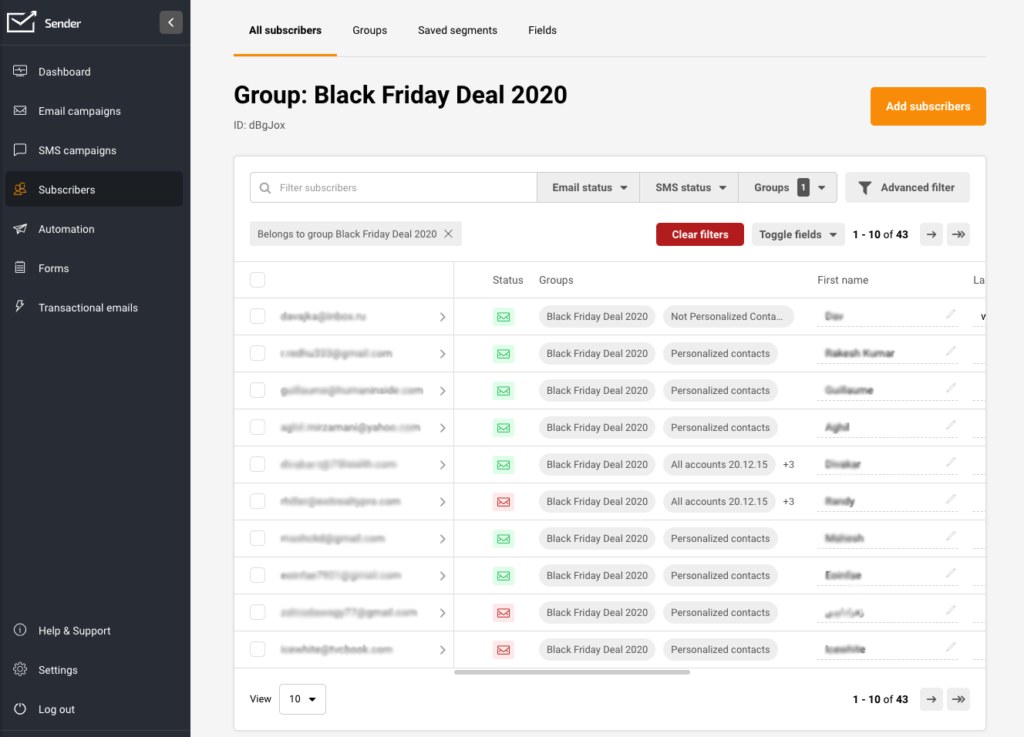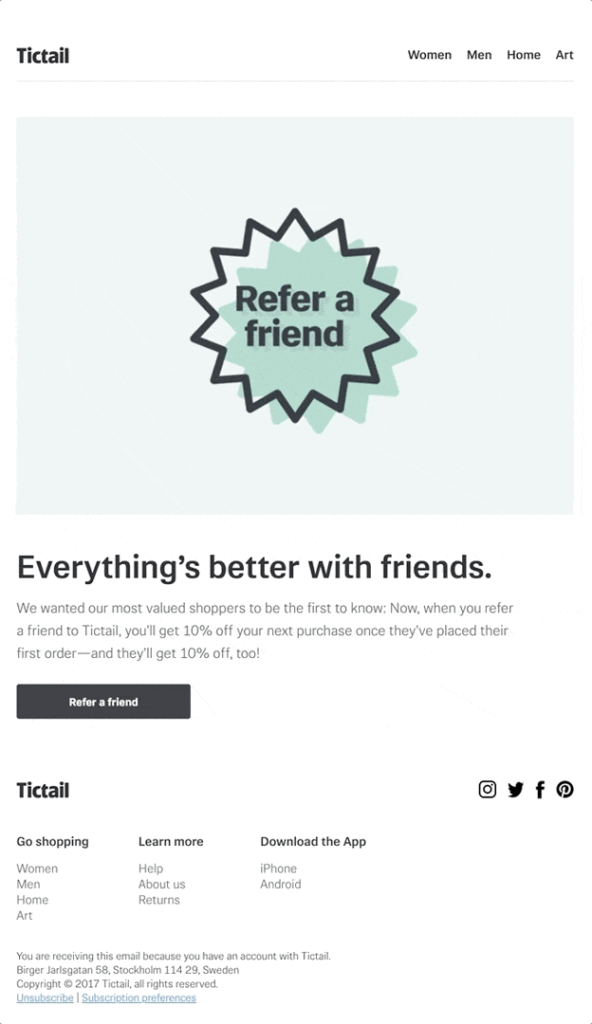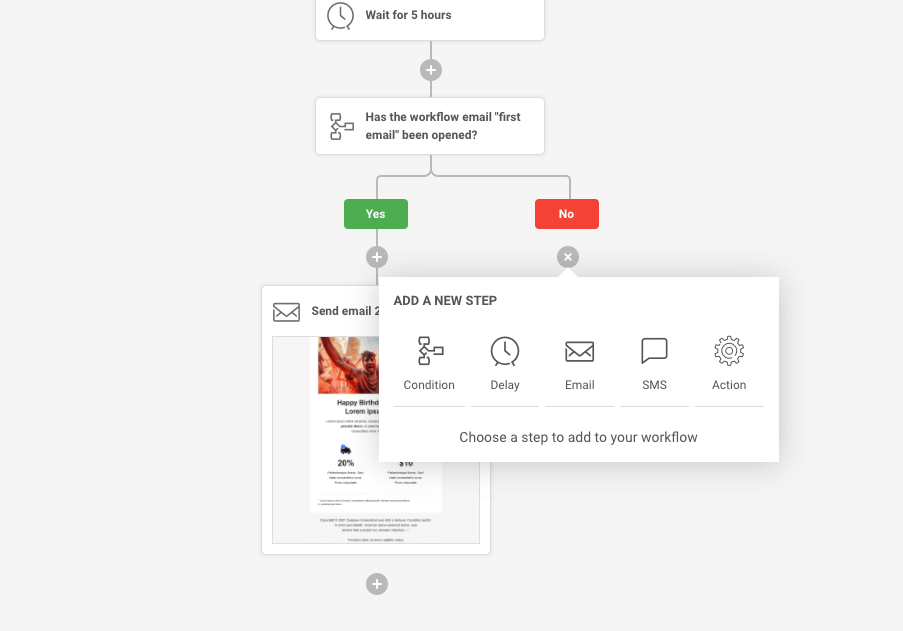Traditional marketing strategies focus on raising brand awareness and building relationships with prospective customers.
In contrast, direct-response marketing & advertising seeks to turn prospects into customers on the spot.
If you’re a business owner, CEO, or entrepreneur that wishes to run a successful direct response ad campaign, kindly take your time to explore this piece; it will enlighten you about the DOs and DON’Ts of DRM, plus strategies and benefits.
What Is Direct Response Marketing?
Direct response marketing (DRM) involves using irresistible offers to compel prospects to move quickly from a ‘buyer consideration stage’ to the ‘buying decision stage.’
This marketing technique evokes an instant response and encourages your target audience to take a required action—maybe read a blog post, make a purchase, share a post on social media, download resource materials, etc.
Direct response marketing provides measurable results within a short time. You can run direct response marketing through online advertising mediums such as online ads, print marketing, landing pages, and radio/TV commercials.
Elements of Direct Response Advertising Campaign
Direct response marketing campaigns easily convert prospects into paying customers when you package your pitch, value proposition, and call-to-action in one place.
Every direct-response advertising campaign revolves around some key elements. To help you intuitively differentiate between the elements of direct response ads and traditional marketing ads, let’s highlight DRM’s core elements.
Customer Centricity
Your target audience will only respond to your ad if it benefits them. Therefore, instead of focusing on brand identity, you must design a campaign around your customers’ needs.
By focusing on your customers’ desires or solving their problems, you will easily obtain an immediate response. To ensure a successful direct response campaign, you must create a highly compelling case that convinces your target audience to take the desired action.
Urgency
DRM campaign aims for immediate response. You must incorporate a sense of urgency in your ad and seal it with CTAs that trigger an instant response. For instance, setting time limits for discounts and limited supply can compel your target audience to act quickly, thereby increasing conversion rates.
A Clear Call to Action
A clear call to action (CTA) is perhaps the most crucial element of a direct-response advertising campaign. CTA helps you direct your prospects to perform the desired action. For a successful direct-response marketing campaign, ensure your CTA is precise, clear, straight to the point, and easily accessible.
Personalization and Targeting
Traditional campaigns aim to promote your brand to as many people as possible using the same message. Comparably, direct-response advertising supports personalized and targeted campaigns.
DRM ensures that your campaign’s offer effectively meets the needs of everyone who interacts with it. Given that 80% of consumers admit that they are more likely to purchase from a brand that offers personalized interactions, this can be a perfect way to improve your return on investment (ROI).
One of the best ways to achieve on-point targeting is with Sender’s email & SMS automation, where you can easily personalize and segment your audience.

Also read:
- STP Marketing: Segmentation, Targeting, Positioning
- 7+ Email Personalization Practices with Real Examples
Benefits of Direct Response Marketing
Direct response marketing can compel your audience to act fast, improve your ROI, and generate leads. Some other exclusive advantages of a direct response campaign include:
Easy to Track and Measure
The precise analysis DRM provides makes it easy to track and measure the number of prospects and leads your campaign generates. Track your performance, optimize your marketing strategy, allocate your resources to the most effective ads, and boost ROI.
Establish Direct Communication Lines
Using direct response ads helps form strong relationships with prospects and potential clients. Once you establish a direct line of communication with your audience, they’ll always be eager to hear from your brand, helping you speedily close sales deals with prospects and customers.
Generate immediate ROI
Direct response marketing focuses on instant reaction and instant revenues from immediate sales. It’s easy to determine the ads that received the best response and how many sales you got from each ad. With this knowledge, you can change or drop non-performing ads and invest in those that bring value.
Identify Interested Prospects
Consumers who respond to direct response ads by clicking, downloading, or signing-up show interest in your products or services. Such a list in the hands of skilled sales experts means more active leads and fewer cold prospects.
Direct Response Marketing Strategy
Successful direct marketing campaigns revolve around multiple best practices. Let’s highlight some of the best practices e-commerce marketers use to guarantee maximum ROI from their direct response ad:
Use Compelling Headlines and Sales Copy
Ads have become so common that most people have learned to ignore them. If you want to stand out and grab attention, you need a highly compelling headline and a persuasive copy personalized to meet the needs and desires of your target audience.
Make your CTA Specific
Your call to action should be clear enough to compel your prospects to take a specific action. Ensure the call to action is immediately recognizable and lets your consumers know what they need to do and how they’ll do it.
If the goal of your direct response marketing campaign is to have your customers download your resource material, ONLY include a CTA button for this action. Adding other CTAs distracts consumers.
Also read: The Importance of Call To Actions for Websites
Provide an Easy Way to Respond
Most of your prospects are busy. There is a high chance they won’t fill out lengthy forms to get to a white paper or wait on a phone line to schedule an appointment. As such, provide a straightforward and quick way to respond.
Direct Response Marketing Examples
Here you will find the best examples of direct response marketing.
Referral Program
People trust the recommendations they get from neighbors, family, and friends. For instance, a referral program asking people to refer your services or products to their colleagues and friends can be a highly effective form of direct response marketing.

Make it easy for your customers to refer their friends to your brand by providing a link to the page you’d want them to visit. You can also incentivize your customers to take action by offering perks like gifts or discounts.
Direct Mail
Direct mail may sound rather old-fashioned, but it’s an option that still works. This form of marketing has been abandoned by most brands, meaning that your campaign will stand out when sent through direct mail.
You can align your newsletters, brochures, etc., with modern techniques like generating and adding a dynamic QR code that redirects them from the mail to your website to boost their impact.
Upselling
Upselling is a sales technique where you invite your customers to buy a more expensive item or upgrade a product they own or are buying. This technique quickly drives sales as it’s much easier to sell to existing customers than trying to sell to prospects.
Upselling is one of the easiest direct-response marketing strategies to implement. B2B and B2C brands can use it to effortlessly win new customers and makes their product/services the talk of the town.
Effective Channels for Direct Response Marketing
Here are the most effective channels to use to execute direct response marketing.
Direct Response TV and Radio
Infomercials are a form of TV commercials that have been used for many years. They are still one of the best practices for direct response marketing. Your brand can capture a new audience by paying for a radio or TV advert during designated breaks in TV shows or events your target audience attends.
Email Marketing
Email marketing is another excellent way to reach prospects. According to a study by McKinsey & Company, email marketing may be up to 40 times more effective than social media!
For instance, you can create a time-limited offer, giving your subscribers access to a free course. Be sure to include a CTA button that directs your readers to the website where they’ll sign up for the free course! Anyways, for an email marketing strategy to work, you need an email service provider, and that’s where Sender comes in.
Sender
Sender is an email service provider offering a user-friendly yet powerful dashboard that helps you run direct response email campaigns through a tightly-knit automation sequence, serving as a high-conversion engine for your business.
The Swiss army knife analogy fits nicely with Sender as well. In-built marketing tools make it a breeze to quickly and efficiently build emails and nourish marketing campaigns with a complete arsenal of powerful features.

Still on the fence? Get started with the FREE FOREVER plan, where you can test the tool or even grow your business without paying a cent. Keep in mind Sender isn’t limiting feature access for small users.
Digital Marketing
Digital or online marketing is a powerful channel for direct response marketing campaigns. Approximately 4 billion people globally use social media, including Facebook, LinkedIn, and Instagram. This makes it one of the best marketing platforms to deploy targeted advertising that generates immediate responses.
Invest in Direct Response Marketing
Winning potential customers and clients from a rival brand is perhaps the most effective way to acquire memorable results. However, with the competition getting stiffer by the day, it’s no easy feat.
With a detailed direct-response marketing strategy, you can use irresistible offers to cut through the noise and reach consumers at the right place and right time – a surefire way to reel in massive sales.
Also read:

